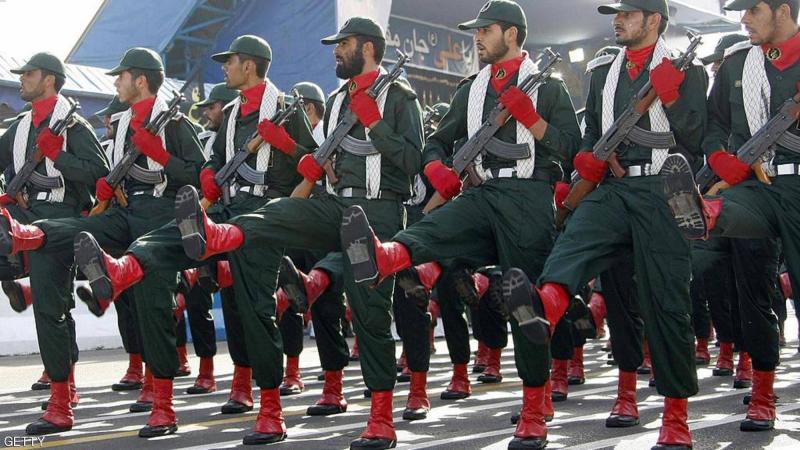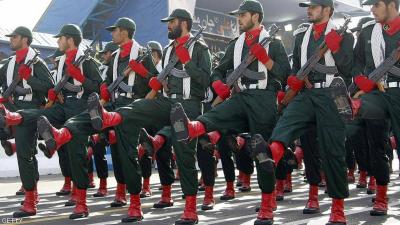The Iranian Revolutionary Guard has bombarded the headquarters and bases of Iranian Kurdish parties using drones and heavy artillery in areas adjacent to the borders such as Sidkan and Juman in Erbil province. This escalation follows a warning from the commander of the Iranian Revolutionary Guard's ground forces, Mohammad Pakpour, last Monday: "The Iraqi government and the authorities in the Kurdistan region of Iraq must prevent terrorists from turning the area into a playground to threaten Iran." He added, "Any negligence or oversight in this matter contradicts good neighborliness and the positive relations between the two countries, and the exploitation of terrorist groups in northern Iraq against Iran is unacceptable, and we will respond appropriately."
In turn, Mohammad Taqi Owsanlu, one of the leaders of the Revolutionary Guard stationed in Iranian Kurdistan, stated: "The Kurdistan Regional Government of Iraq should not harbor these groups on its territory, and we have informed the region's officials that they must expel them." He continued, "We will definitely attack these armed groups, and I ask civilian populations to stay away from their headquarters."
Observers believe that Iran aims through this escalation to influence the Iraqi and Kurdish landscape as the Iraqi electoral deadline approaches in one month, in an effort to mix the cards, increase tensions, and remind that Iran can undermine the security of Iraq and the Kurdistan region whenever it desires. This, they argue, is a preemptive attempt to counter any potentially adverse results for Tehran from the elections.
In this context, a leading source in the coalition of Iranian Kurdish opposition parties stated in an interview with Sky News Arabia: "This is not the first time, nor will it be the last, that Iran practices its organized terrorism against us, whether inside Iran or outside. But this time it speaks in a louder voice, threatening and warning the Iraqi authorities and the authorities of the Kurdistan region of Iraq, as if we have not been here in the Iraqi Kurdish region for many years, and suddenly the Revolutionary Guard has discovered our locations here, thus launching its threats. Undoubtedly, the key to this escalation, which was materially demonstrated today, is the fear that looms over the regime from both domestic and external factors."
He adds, "We expect the worst and we must be cautious, as we are dealing with a regime that is defiant of international laws, besieged and globally ostracized, which thrives only in atmospheres of war, chaos, and blood to escape from pressing internal obligations, from the Covid-19 pandemic ravaging the people to economic collapse, isolation, and failure on both internal and external fronts."
Regarding this Iranian military escalation on the eve of the Iraqi elections, Iraqi political writer and analyst Ali Al-Baydar stated in an interview with Sky News Arabia: "This violent Iranian bombardment indicates, of course, that Iran, as is its custom, does not respect Iraq’s sovereignty as a state, nor does it deal with it in a respectful manner. It continues its violations in various ways in this context. Despite having good relations with most political forces in Baghdad or in the Kurdistan region of Iraq, Tehran nonetheless insists on its provocative and expansionist practices in Iraq."
The Iraqi writer continued, "The timing signals, on one hand, a message to the opposing Iranian Kurdish parties to prevent them from contributing to the rising movements and discontent against the regime inside Iran, from Ahvaz—which Tehran calls Khuzestan—to Kurdistan. This is manifested in widespread public demonstrations and political movements across different regions and provinces in Iran, due to the accumulation and escalation of economic, health, and social crises in the country. It is a warning message implying that if you persist, we will reach you here."
He adds, "Certainly, the Kurdish forces represent a significant part of the Iranian opposition, and thus the regime seeks to intimidate them and attempt to neutralize them amid increasing popular pressure and rejection of the mullahs' rule, and the calamities it has brought upon all Iranians."
Al-Baydar calls for Baghdad to respond seriously to Iranian violations, stating: "Iraq must confront this new Iranian escalation firmly, possibly even lodging an international complaint with the United Nations and the Security Council concerning Iran's breach of Iraqi sovereignty under flimsy pretexts that do not conceal its dubious internal agenda in Iraq."
Iraqi Kurdish sources, who spoke to Sky News Arabia, do not rule out the existence of an Iranian plot to change the rules of the game, demanding the withdrawal of the Iranian Kurdish Peshmerga forces stationed in Iraqi Kurdistan, in an effort to embarrass the regional authorities and put them in a confrontation with their Iranian Kurdish compatriots, who were forced to flee and concentrate in Iraqi Kurdistan due to the repression, pursuit, and open war against them by Iranian authorities, especially since they do not launch any attacks from Iraqi Kurdistan into Iran.
Around 12 million Kurds in Iran suffer from the absence of even their most basic national and democratic rights, and the authorities there enforce systematic discriminatory policies against them, as well as practices of repression and terrorism both domestically and externally.




